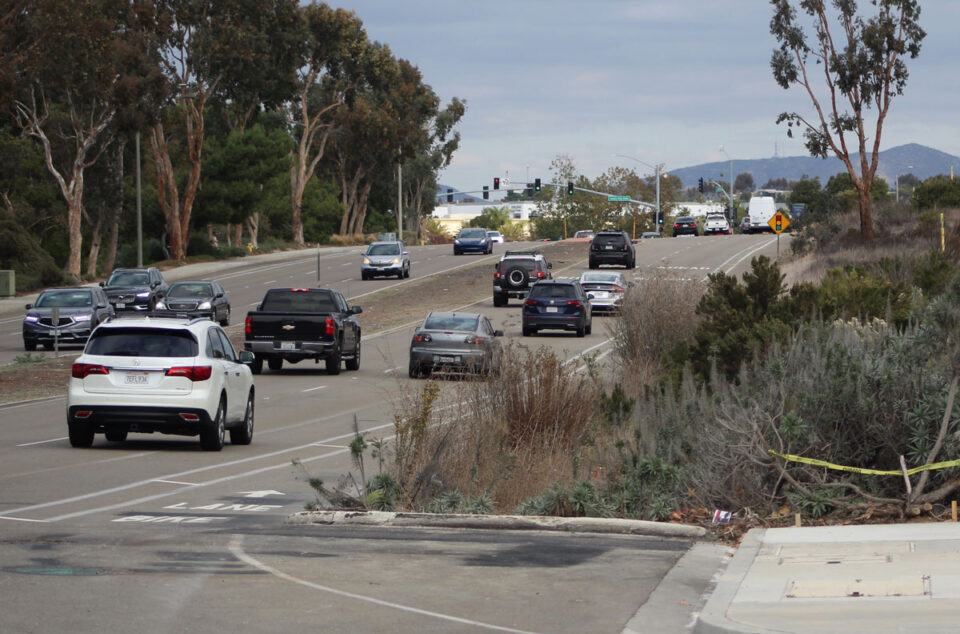CARLSBAD — The city is moving forward with a pair of road widening projects along El Camino Real in a final push to meet standards outlined in its general plan.
The Carlsbad City Council approved a pair of resolutions during its Nov. 15 meeting to allow city staff to negotiate with property owners to acquire land for construction easements.
The road widening projects are from Sunny Creek Road, south of Cannon Road, to Jackspar Drive, and from Cinnabar Way to Camino Vida Roble, just south of the Carlsbad Unified School District office.
Both projects will widen the northbound lanes along El Camino Real to alleviate congestion and meet city standards. A third road widening project consisting of a stretch along El Camino Real south of Aviara Parkway, was not on the agenda.
The land from Cinnabar Way to Camino Vida Roble has an estimated fair market price at $260,000, per the staff report. The property from Sunny Creek to Jackspar Drive is valued at $127,000.
Mayor Matt Hall voted against the Jackspar Drive project, as described by staff in its report, which would seek $3 million-$4 million from the city’s general fund. During the meeting, staff did not mention other possible funding sources for the project, such as SANDAG or federal grants, which left the mayor puzzled as to why private property owners would not be responsible for covering construction costs.
According to Hall, the city has required developers to pay for these types of projects for decades as a condition of construction. City records show federal grants and Transnet funds would help cover the project costs.
“In this case, to the best of my knowledge, the project has been expedited for construction,” said Hossein Ajideh, the city’s engineering manager. “That’s why the city is moving forward with local funds. If the owner agrees to a price, we would return to the City Council for approval.”
Paz Gomez, director of public works, and Ajideh said the projects had been scheduled within the Capital Improvements Program for several years due to deficiencies in roadway capacity.
“This is the city initiating,” Gomez said. “The reason for moving forward is for City Council to help with the capacity — it’s city-led. A developer did not come to us and state it’s a condition of approval.”
However, according to Jeff Murphy, director of community development, another reason the city appeared to be willing to expend its own funds for the Jackspar Drive project stemmed from the city’s housing element update.
Before approving its housing element last year, the city reached out to property owners with undeveloped land to gauge interest in increasing housing density on their lots.
At the time, an owner along the Jackspar Drive property declined, effectively removing them from any future financial obligations to expand the roadway. The city was then presumably on the hook financially for any roadway widening or improvement projects, prompting staff not to include additional funding sources initially.
After the housing plan was submitted, the same land owner had reconsidered the city’s density inquiry, but the project was already under review by state housing officials.



